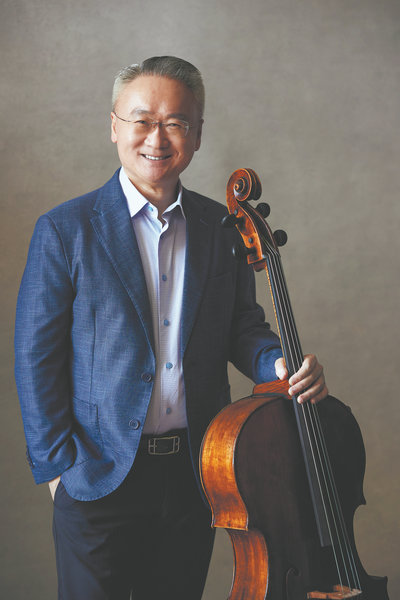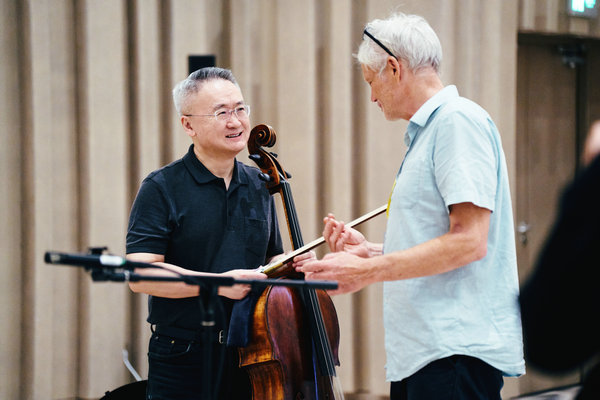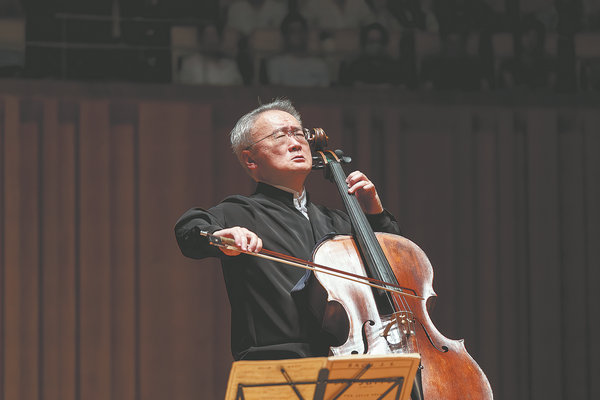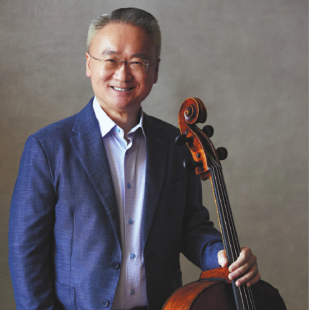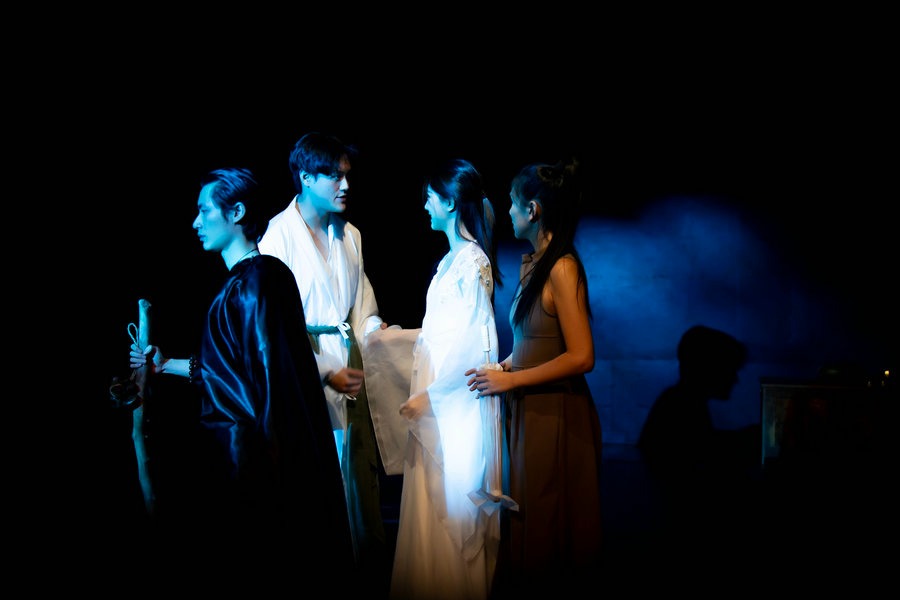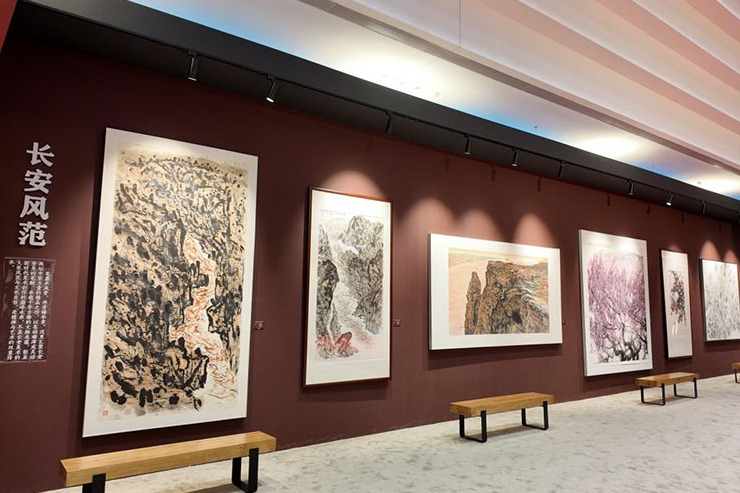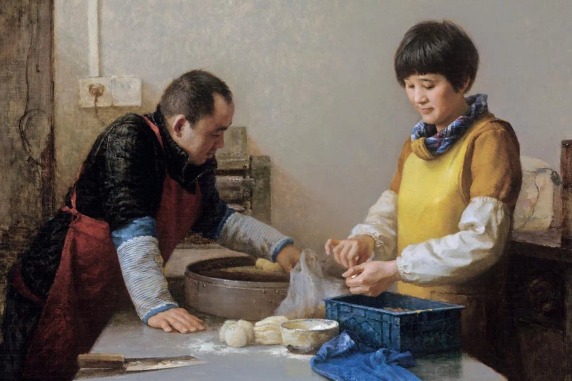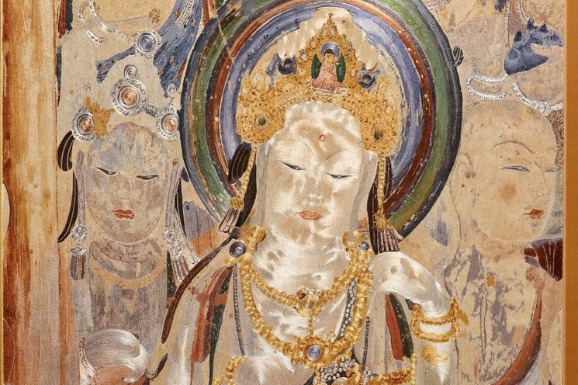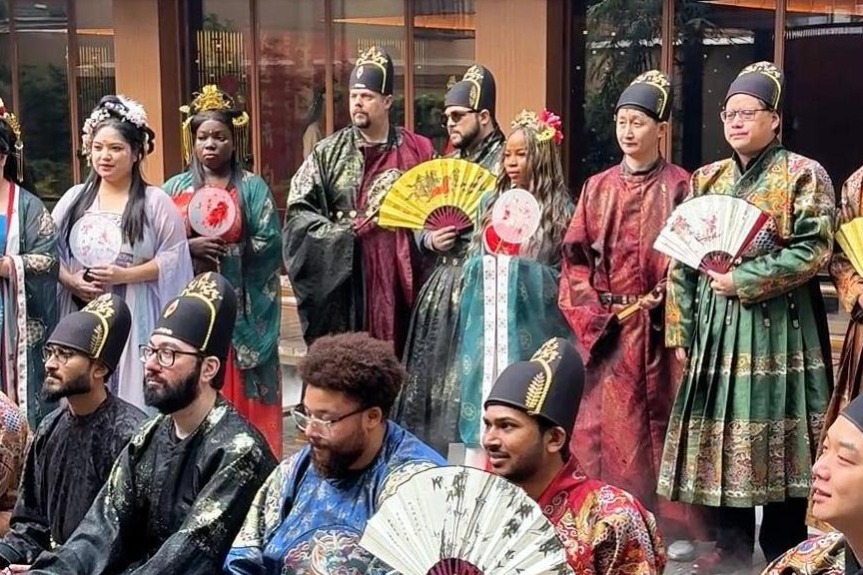Celebrated cellist plucks at audiences' hearts
With a new album, musician focuses on bringing maturity and depth to Bach's Baroque works, Chen Nan reports.

Sitting with his eyes cast slightly downward, as if savoring the moment and allowing the echo of the music to settle deep within him, is the image depicted on the album cover of celebrated cellist Wang Jian's latest release, Johann Sebastian Bach: The Cello Suites (BWV 1007-1012).
After years of searching and maturing personally and professionally, the 57-year-old musician finally found a way to put his heart into these monumental works.
The album was released on May 23 by Deutsche Grammophon China, which also marks the first album to debut on this newly launched label following the official announcement of its establishment by Universal Music Group on May 14.
This is a significant moment in Wang's career, marking his second complete recording of Bach's iconic Cello Suites since his first in 2004. This new interpretation reflects 20 years of artistic development and personal insight, bringing a fresh level of maturity and expression.
"When I'm alone or weary," Wang says, "I turn to Bach. Some of his music makes you look inward. At that moment, you truly see yourself and your soul.
"A performer can never be fully satisfied with their own playing; there is always a desire to do better. This is something they must face and overcome," he continues. "No recording can represent your highest level, nor can it fully capture the performance results you want to achieve. However, it can at least summarize the best state you reached at that time."
In recent years, Wang has had more time to practice at home, listening to many other recordings by composers from Bach's era, as well as pieces performed with historical instruments, gaining inspiration from these experiences.
The new album was recorded in September 2024 at the Shanghai Conservatory of Music's Opera House, with veteran producer Dave Tan as executive producer and Grammywinning engineer Rainer Maillard in charge of recording and editing.
This time, the cellist sought deeper self-expression.
"Over the past 20 years, I've explored the profound world of Bach. My first recording focused on the precision and perfection of every note. This time, I hope to capture the core framework of the music and give it a sense of improvisatory vitality," he says.
Composed between 1717 and 1723, Bach's Cello Suites became Baroque masterpieces of instrumental music. Each suite features six movements, beginning with a prelude, followed by stylized dances such as the allemande, courante, and sarabande, then ending with a gigue. Known for their rich contrapuntal texture, the works push the cello's expressive boundaries, using double stops, arpeggios, and chordal writing.
In this new version, Wang emphasizes the dance-like qualities and adopts a more flexible approach to rhythm, with more concise, direct phrasing. This showcases a style distinctive from the "refined" approach 20 years ago.
"Music is not a technical exhibition but a spiritual resonance. Bach's works are like a mirror; they reflect the performer's aesthetics while mercilessly exposing their limitations — which is precisely what makes them great," the cellist says.
Born in Xi'an, Shaanxi province, 4-year-old Wang moved to Shanghai with his family. As a child, he learned to play the cello with his father, also a cellist. Wang first encountered Bach's Cello Suites at age 7 and gave his first public performance of the works at 10.
Considered a child prodigy, Wang enrolled in the primary school attached to the Shanghai Conservatory of Music at age 9. In 1979, celebrated violinist Isaac Stern made a historic visit to China with a documentary crew. In 1981, the film From Mao to Mozart: Isaac Stern in China won an Oscar for Best Documentary (Feature). Wang became known internationally as the child prodigy who played the cello with a serious expression.
In 1982, Wang was selected to perform in the United States and toured the country for two months, playing in about 50 concerts. In 1985, he entered the Yale School of Music. The very next year, he made his debut at Carnegie Hall. Since then, he has embarked on an international career.
In March 2023, after living and touring in Europe and the US for decades, Wang returned to Shanghai to teach in the Shanghai Conservatory of Music's strings department.
He says teaching has given him a new perspective on life that he hadn't experienced.
"With fewer performances, I have more time to prepare each one in detail, refining it carefully," says Wang. "When my students learn this suite, I recommend they listen to organ music. No matter what piece they study, hearing the organ is crucial because it connects us to our ancestors, showing how music has evolved and allowing us to feel its grandeur and sacredness."
Wang has performed the suites around the world. One experience, in particular, left a lasting impression on him.
At a music festival in London, known for its lively atmosphere, Wang thought he was performing in a small church, but instead, he performed at the 5,000-seat Royal Albert Hall.
"I sat alone on stage. The concert hall was packed, with some people standing. It was completely silent. My cello made the audience fall silent, and we all shared a moment of connection. In that instant, I didn't feel alone. Their hearts were connected with mine. For a musician, that is the greatest reward," recalls Wang.
On May 24, Wang played the three works from Bach's Cello Suites at the National Centre for the Performing Arts in Beijing.
"It feels like an emotional journey. The depth and richness he brings to each movement touched my heart," commented a fan on the social media platform RedNote after watching the concert.
"Having followed Wang Jian for years, the maturity in his playing is remarkable. His interpretation is not just technically precise but also full of warmth and expression," wrote another fan.
Contact the writer at chennan@chinadaily.com.cn
